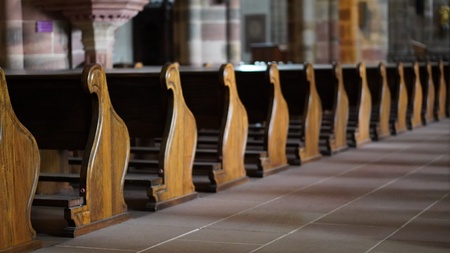Louise Locock reflects on mixed personal experiences of funerals during COVID-19
I have ‘participated’ in three ‘funerals’ since March 2020 and the beginning of lockdown. I say ‘participated’ because in two of the three cases I wasn’t there, and I say ‘funeral’ because in one case it wasn’t a service or ceremony but watching a youtube video. These experiences have raised a number of reflections for me, and the first motivated me to become involved in this project.
Very early in the pandemic, in March, a friend died of COVID, the father of one of my son’s closest friends. This was at a time when restrictions on funeral practices were severe and sudden; everyone, including funeral directors and celebrants as well as bereaved families, was struggling to work out what was possible, and how to involve those who weren’t permitted to be physically present. The family in this case invited people to contribute memories and photos to an online tribute page, but also put together a youtube slideshow of photos, with a raucous rock soundtrack, reflecting the personality and biography of the man they loved. On the day of the funeral, while a handful of close family gathered at the crematorium, those of us who couldn’t be there had instructions to play the film – at top volume – at a particular point, timed to end at the moment of committal. It was a strange experience, gathering round a laptop in the kitchen, in our everyday clothes, with the door to the garden open and the cats wandering in and out. But good, too – funny and sad, short and surreal.
By the time the very elderly mother of one of my oldest schoolfriends died in September, not of COVID, pandemic funeral practices had changed rapidly. By now, live streaming of funerals seemed to have become common practice, and the technology was quite sophisticated. So at the appointed time we ‘joined’ the full funeral in the cathedral where I had attended my friend’s wedding, and the funeral of her father some years before. The live stream, with cathedral branding, included panned shots of the architecture, the flowers, the organ, before focusing on the service. The family and other congregation were only visible from behind, apart from those who stood up to speak or read. It struck me that in some ways a remote funeral, while it may deprive families of the comfort of friends, also spares them the need to be on show at a time of personal grief, to shake the hands of people they sometimes barely know, and to hand round sandwiches and chat when that might be the last thing they want to do.
Finally, my own uncle died in January, of COVID acquired in hospital, on top of other conditions. Close family and a few friends were able to attend, in a little country church, where my cousins’ baptisms, weddings and one funeral had taken place in years past. I went with some trepidation; this was the first time I’d been indoors with non-household members for many months, and I was afraid of being too close to people. We hummed a hymn through our masks rather than singing, but in other respects it was very similar to a ‘normal’ funeral, with happy memories and funny stories, love, beautiful poems, and a sense of a long life well lived. The funeral was also live-streamed, but being a tiny church rather than a grand cathedral the quality of the filming was a bit ‘hand-knitted’. Afterwards, the immediate family provided individual picnic boxes for everyone present and we chatted at a distance. Some members of the congregation found it hard to remember to keep socially distant in the churchyard, and I discovered that it is well-nigh impossible to tell an elderly person who keeps edging closer to you as they reminisce about the dead to step back. It was the funeral that came closest to normal practice, but the sense of background threat from the pandemic was ever-present.
What do I take from this? That this has been an awful time for so many families, with grief at their loss compounded both by harsh restrictions, and in many cases by the nagging sense that so many of these deaths might have been avoided, if only, if only…..But also that human beings are endlessly creative, and that force of circumstance has prompted the development of new ways of marking someone’s passing. It leaves me with a question: what is a ‘proper’ funeral?
Please click here to take you back to the Care in Funerals website.


